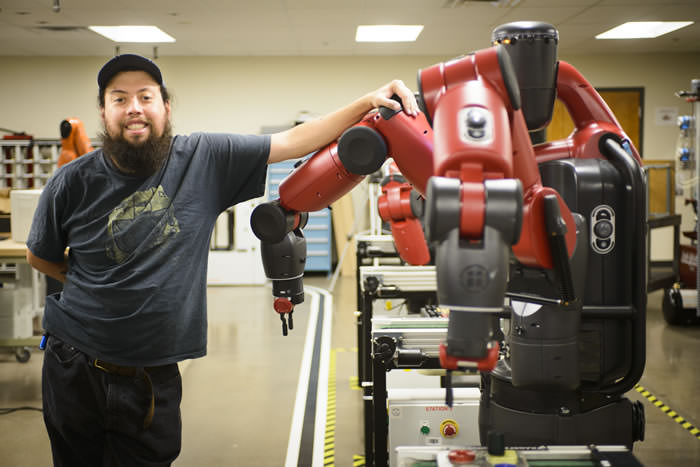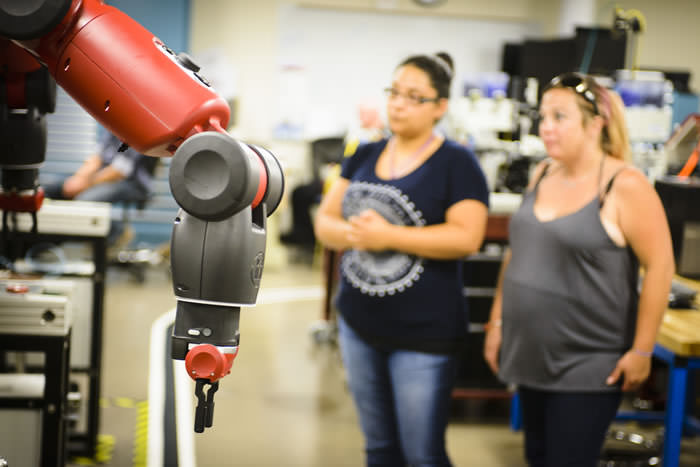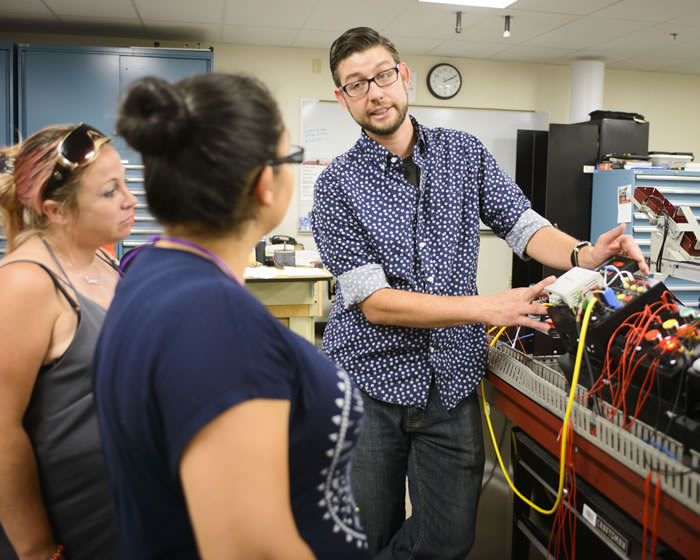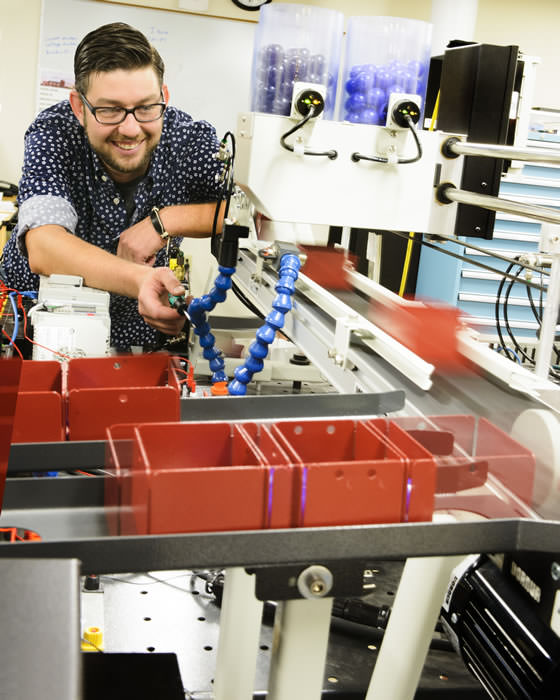edible education
A PENCHANT FOR PROCESSING
TMCC program benefits area food manufacturing boom.
WRITTEN BY NATASHA BOURLIN
PHOTOS BY ASA GILMORE
How do the foods we purchase in grocery stores wind up in the myriad packages tempting us from shelves? Food lovers fascinated with the process have a resource that allows them to delve deeper, thanks to a program at Truckee Meadows Community College in Reno.
A multitude of local- and national-scale food manufacturing companies now call Northern Nevada home. They seek skilled, entry-level labor. In fall 2013, TMCC answered the call coming from the area’s burgeoning industry, and the associate of applied science degree in manufacturing technologies — food processing technology emphasis was born.

New program
If the degree had a recipe, its ingredients would be biology, chemistry, food science, a sprinkling of culinary education, a pinch of math, and philosophy. Blend well for associate degree after placing in pressure cooker for about four semesters.
The degree provides students with an understanding of occupational safety practices for a commercial food-processing plant and application of sanitation standards in a bulk-food-preparation environment. Students also learn about nutrition, selection, preservation, packaging, distribution, and the essentials of large-scale food preparation.
Regulations of the U.S. Department of Labor’s Occupational Safety and Health Administration, personal safety, the importance of safe work habits, plus fundamental principles and practices of industrial quality control are other key components.


Mechanizing quality
When speaking to area food manufacturers about their needs before the program launched, administrators received feedback from the quality assurance departments. In just a few years since the program began, industry needs have quickly evolved. There’s now more automation in production facilities. A challenge for the program has been merging both the manufacturing and the culinary sides to mold an optimal employee for the food-processing industry.
“There are different occupational splits here in Nevada, and we’re identifying how TMCC can better serve those,” says Barbara Walden, TMCC’s director of applied industrial technologies.
Luckily, department heads work directly with industry leaders to learn how to better serve their hiring needs.
Reno-based Kimmie Candy seeks specialists in food processing, engineering, and quality control, among other areas. Joseph Dutra, Kimmie Candy’s president and CEO, and his team have participated in panels along with their peers to provide beneficial feedback for the program. Among the diverse and insightful group that produces a wide variety of food types locally, a common thread can be found among their requirements as food manufacturers.
“Food science and manufacturing go hand in hand,” Dutra says. “We look for QA/QC background documentation. That’s becoming more and more important in the industry.”
QA/QC stands for quality assurance/quality control. Elements of both are taught in the TMCC program, which focuses on the understanding of food processing, plus quality and development standards found in food manufacturing. Once certification is achieved, it’s up to the manufacturers to tailor a new team member’s knowledge to best benefit the respective product.
Plans for the program’s future include convening another panel for advice regarding the program’s direction, as well as looking at additional hands-on courses on the manufacturing side to keep up with the automation upswing. As the industry continues to grow in Nevada, so will TMCC’s contributions to it.
Natasha Bourlin is a Reno-based freelance writer who always has been curious about how tasty things get into all those packages.
Resources
For details on the TMCC applied science program and its manufacturing technologies degree, visit Tmcc.edu/appliedtech or call 775-856-5300.


